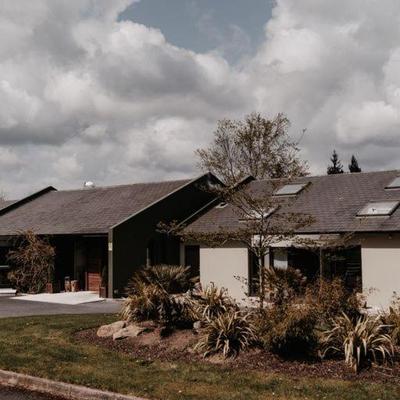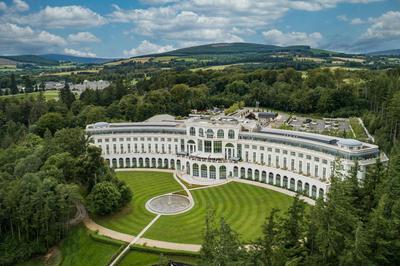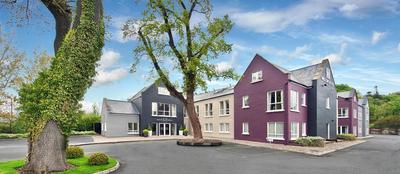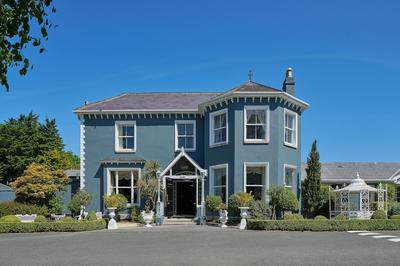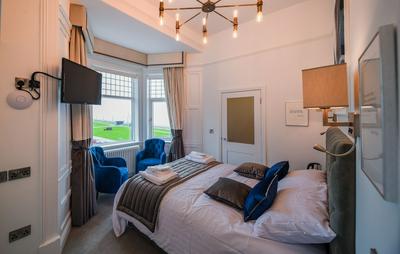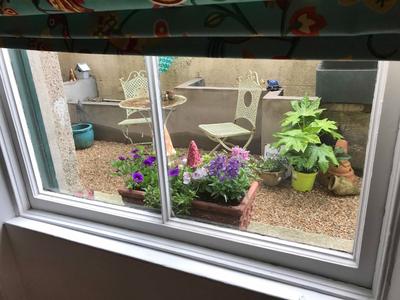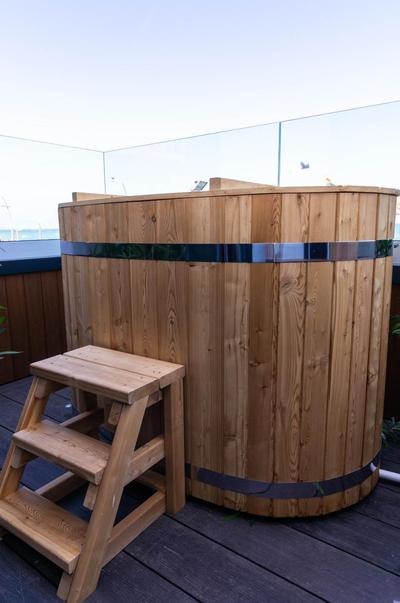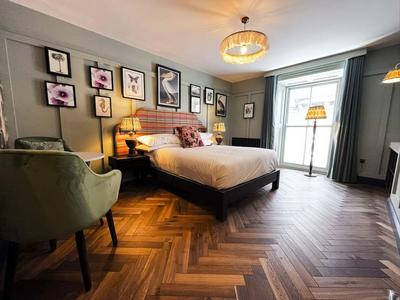When to visit Dublin?
Dublin offers a temperate maritime climate, with mild winters and cool summers. The best time to visit is during late spring (May to June) and early autumn (September to October) when the weather is pleasant and the tourist crowds are relatively smaller. Summer (July to August) draws larger crowds as visitors flock to enjoy the long daylight hours, vibrant green parks, and outdoor festivals. Expect daily highs of 18-20°C (64-68°F), but be prepared for occasional rain showers.
Winter (December to February) is the chillest time to experience the city, with temperatures ranging from 2 to 8°C (36 to 46°F). However, Christmas transforms Dublin into a charming destination filled with festive lights and markets, making it a unique time to visit.
How to get to Dublin?
Dublin is easily accessible by various modes of transport. The primary entry point is Dublin Airport, located about 10 kilometers (6 miles) north of the city center, with frequent flights connecting it to numerous international destinations. There are several bus services, such as the Airlink Express, that connect the airport to central Dublin in around 30 minutes.
Alternatively, you can arrive by train or bus. Connolly Station is the central hub for intercity trains, while Busáras serves various national and regional bus services. If you're driving, Dublin is well-connected by major highways, and the journey from neighboring cities like Belfast takes around 2 hours. Just keep in mind the city's traffic, especially during rush hours.
Tourist activities in Dublin
Dublin is a vibrant city teeming with activities for all interests. Spend your day exploring iconic landmarks like the Dublin Castle and the historic Trinity College. Enjoy the beauty of St. Stephen's Green Park or take a leisurely stroll along the River Liffey. For history enthusiasts, the National Museum of Ireland offers fascinating exhibits, while art lovers can visit the Dublin Gallery or explore local street art.
When night falls, enjoy the lively atmosphere of Temple Bar, renowned for its pubs and live music. Consider catching a traditional Irish music session or experiencing the local theater scene. With numerous cafes, boutiques, and hidden gems throughout the city, you're sure to find your niche!
Events and festivals
Dublin hosts an array of vibrant festivals that celebrate its culture and heritage throughout the year. In January, the Dublin International Comedy Festival kicks off the year with humor and laughter. February brings the Temple Bar Trad Fest, showcasing traditional Irish music in various venues across the city.
The Dublin Dance Festival in May draws contemporary dance enthusiasts, while the Bloomsday Festival in June honors James Joyce and his literary masterpiece, 'Ulysses.' In September, the Dublin Fringe Festival showcases emerging talent across theater and performance arts. The Christmas market in December brings festive cheer, offering local crafts and seasonal treats in a bustling atmosphere.
Family and kids activities
Dublin is well-suited for family outings, with numerous parks and attractions designed for children. Dublin Zoo in Phoenix Park is a popular spot, home to a wide range of animals and conservation programs. For interactive learning experiences, visit the EPIC The Irish Emigration Museum, which offers engaging exhibits about Irish history.
Families can explore the National Children's Museum, boasting interactive displays, or take a day trip to Dún Laoghaire's seaside for beach fun. For outdoor play, head to Herbert Park or St. Anne's Park, offering playgrounds and picnic areas for a leisurely day out.
What to see in Dublin?
Dublin is rich in history and culture, with many attractions that should not be missed. Here are some key sites to explore:
- Trinity College: Home to the stunning Book of Kells.
- Guinness Storehouse: Learn about the history of the iconic beer and enjoy a pint with panoramic views of the city.
- St. Patrick's Cathedral: Ireland's largest cathedral with stunning architecture.
- Dublin Castle: A historical landmark with beautiful gardens.
- The National Gallery: Explore an extensive collection of European art.
- Temple Bar: The lively cultural quarter filled with cobbled streets, pubs, and galleries.
- Kilmainham Gaol: A former prison with a rich historical background.
Accommodation in Dublin
Dublin caters to a variety of accommodation options, from luxurious hotels to budget-friendly hostels. The city center is ideal for those seeking convenience, with hotels like The Shelbourne offering luxury alongside proximity to key attractions. Budget travelers can find hostels like Generator Dublin, providing a social atmosphere.
For a unique experience, consider boutique hotels in the Temple Bar area or Airbnb options in neighborhoods like Rathmines. Prices vary widely but expect to pay around €100–€150 for mid-range accommodation in the city center.
Important numbers and information
- Emergency Services: 112
- Tourist Information Center: 14 O'Connell Street, Tel: +353 1 605 7700
- Main Hospitals: St. James's Hospital, Tel: +353 1 410 3000
- Dublin Airport: Tel: +353 1 814 1111
- Public Transport Info: Dublin Bus 01 873 4222, Luas 01 474 2280
- Taxi Apps: Free Now, Gett
- Currency: Euro (€), Cards widely accepted
Where to eat?
Dublin boasts a vibrant food scene, celebrated for its local cuisine and innovative dining options. Traditional dishes like Irish stew, soda bread, and seafood chowder can be found in various local pubs. The Temple Bar area features restaurants offering a mix of international cuisine alongside typical Irish fare.
For a unique experience, try the food stalls at Dublin's many markets, like George's Street Arcade, where you can sample local foods and specialties. Average meal prices range from €10-€20 in mid-range restaurants.
Nightlife – where to go out?
Dublin's nightlife buzzes with energy and excitement. The Temple Bar district is famed for its sprawling pubs, often filled with live music and a friendly atmosphere. Visit The Temple Bar Pub, known for its traditional music sessions, or head to The Porterhouse for craft beer and lively ambiance.
If you're looking for clubs, Dublin offers places like District 8, known for its electronic music scene, and Copper Face Jacks, a favorite among locals for a fun night out. The nightlife continues in streets like Camden Street, where bar-hopping is popular, merging local flavors with an electric vibe!
Transport and taxis
In Dublin, public transport is convenient and straightforward. The city is served by buses, trams (Luas), and the DART train system, providing easy access to various parts of the city and suburbs. A one-way adult ticket ranges from €1.60 to €3.30 based on the distance travelled; it's advisable to use a Leap Card for savings and convenience.
Taxis are widely available, and you can use apps like Free Now to book rides easily. It's important to note that Dublin's taxis operate on a meter, and drivers are generally friendly and knowledgeable about local sites.
Parking and public garages
Dublin has designated parking zones throughout the city. On-street parking is available, but be aware of restricted hours and payment requirements, typically through parking meters. Rates can range from €3-€4.50 per hour depending on the area.
Several public car parks, such as Parkrite and Q-Park, offer secure parking options at varying prices. Always check signage for parking regulations. It's recommended to avoid driving in the city center due to congestion and limited parking availability.
Surroundings of Dublin
Just outside of Dublin, you can find beautiful day-trip destinations perfect for a short escape. Head to the scenic coastal town of Howth, where you can enjoy stunning cliff walks and fresh seafood.
Another option is the tranquil Powerscourt Gardens, renowned for their breathtaking landscapes and historical significance. For nature lovers, the Dublin and Wicklow mountains offer hiking opportunities that showcase Ireland's stunning natural beauty. These spots provide a refreshing contrast to the bustling city life, just a short journey away!

